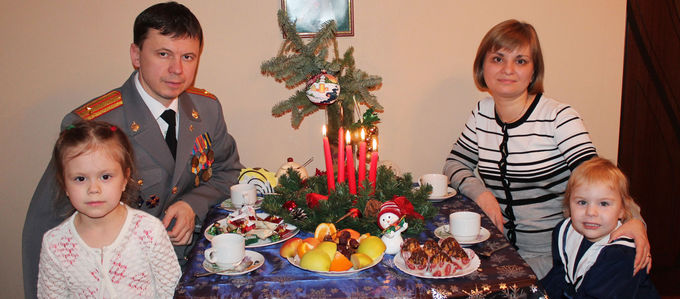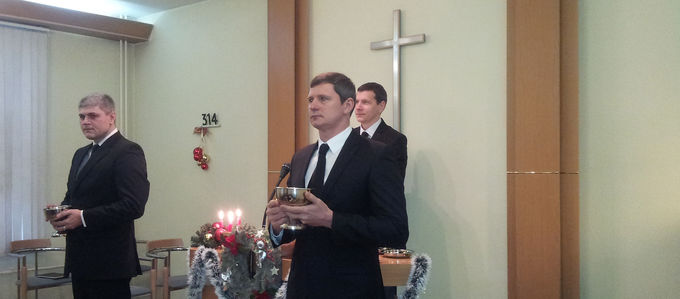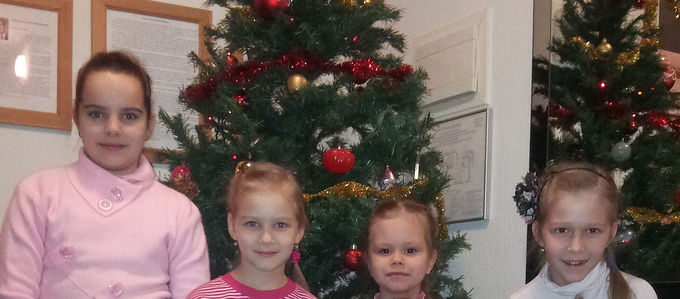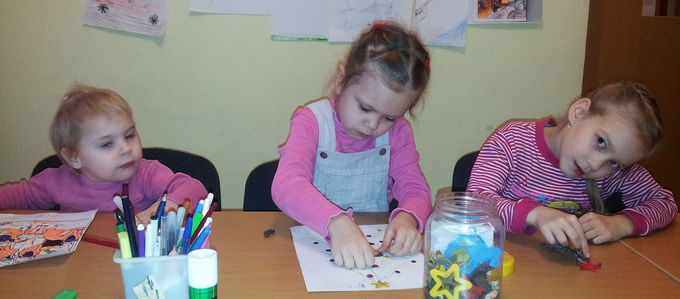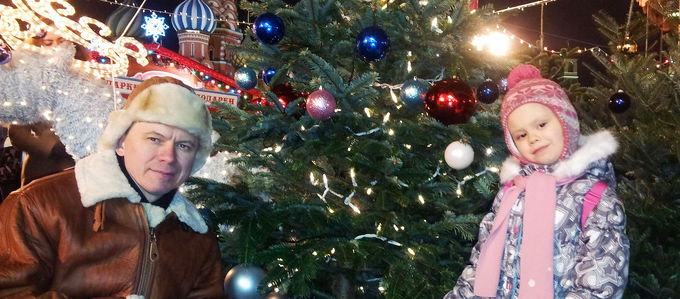An Advent wreath with six candles
Merry Christmas! Pardon? Christmas is long gone. But not in Russia. According to the Russian calendar Christmas is today, 7 January. For New Apostolic Christians this time of the year is a bit of a balancing act between the cultures.
Today the Gregorian calendar is in use around the world. Parts of the Orthodox Church, however, continue to use the Julian Calendar─which is 13 days behind the Gregorian calendar─and so fixed the date for Christmas in Russia, for example, on January 7th of our calendar.
Tatyana Uskowa describes what that can mean for New Apostolic families. Tatyana is 38 years old and lives in Moscow with her husband, Dimitry, and their two daughters, Anatasiya (6) and Victoria (almost 3). She works at the offices of the New Apostolic Church in Moscow and is the senior editor of the Russian Our Family and the children’s magazine. She writes:
“Because of the politics in the Soviet Union, it was normal for us Russians that our New Year’s Day celebrations were always more important than Christmas. We only started to celebrate Christmas starting in 1991, when the festival was declared a public holiday.
“Since we celebrate Christmas according to the Gregorian calendar, namely on 7 January, New Year’s Day was always first. It is synonymous with lavish presents, decorated fir trees, all kinds of food and drink, dancing and singing, and fireworks. The celebrations tend to be fun and loud. In Russia we do not know Santa Claus or Saint Nick. We have Ded Moroz (Grandfather Frost), who is accompanied by his granddaughter, Snegurochka (Snow Maiden). They bring gifts to our children in the last few days of the old year.
“Before the New Year’s Day celebrations, our congregation organizes a feast. Since there are a number of newcomers and students in our congregation who go home to celebrate New Year’s Day, we always come together on the last Sunday of the old year for our celebration. After the service, we have a festive concert. Everyone is welcome. The children put on a play, sing songs, and recite poems. Afterwards, they receive sweets, and the whole congregation sits down to tea or coffee and homemade cakes and pastries.
“Being New Apostolic, the Advent season means a lot to us. It begins on the same day as in Europe. On the first Sunday of Advent, we place a wreath on the altar and light the first candle. But since there are six Sundays to January 7th, our wreath has a total of six candles (instead of the four candles that most people in other parts of the world are familiar with). On the last Sunday of Advent we light all six candles.
“This year our daughters helped us to make our own Advent wreath. Every Sunday we lit the candles on our wreath, our older daughter said a prayer, and then we had tea. In the morning we drove to church.
“Just before the European Christmas on December 25th, we put up a Christmas tree in our church. This time the Sunday School children helped us. The whole church, including the altar, was decorated with tinsel and Christmas balls.
“Since we have many friends and acquaintances from Germany, it is impossible to ignore Christmas on 25 December, even though it is not a public holiday in our country. If this day falls on a weekday with no scheduled service we organize an afternoon tea at the Church offices for all the staff and exchange gifts. At home we put up a Christmas tree on that day. The girls help us with the decorating.
“On 7 January we go to church. It is always a very special service. Afterwards we have tea and sing Christmas carols. When we come home, our daughters receive some small presents. Since they receive their main presents on 1 January, we give them little treats on 7 January such as sweets and books. That evening we have a special dinner. On the menu are salads, caviar on toast, fish, a goose, chicken or pork with potatoes, meat in aspic, various pastries and a cake, sparkling wine, and lots of sweets. While we have dinner we either listen to music or watch a Christmas concert on television.
“People celebrate Christmas in many different ways. Those who are not as religious as we are and see this festival as a chance to party, have a fun and loud party. Some celebrate with their families, others invite guests, and still others are invited. Religious people, on the other hand, celebrate in all quietness.”
Article info
Author:
Date:
Keywords:
Tatjana Uskowa,
Andreas Rother
07.01.2015
Russia,
Christmas,
Congregational life


